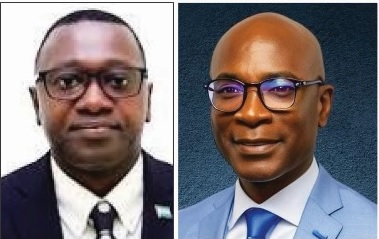By Hassan Osman Kargbo
The nationwide teachers’ strike in Sierra Leone is set to continue despite government assurances of partial payments, as union leaders insist that over NLe 1 billion in subsidies remain outstanding.
On Sunday, September 7, 2025, the Ministry of Basic and Senior Secondary Education announced through a press release that the government had disbursed NLe 82.5 million as part of its financial obligations to schools. The payment, according to the ministry, was aimed at addressing some of the concerns raised by the Sierra Leone Teachers Union (SLTU), triggering the ongoing industrial action.
However, speaking on Liberty Online TV on Monday, September 8, the Secretary General of the Conference of Principals, Mr. Amos Musa Kai, said the strike would not be called off until the funds are fully reflected in the designated school accounts. He stressed that the teachers are not convinced by government’s announcement until the actual transactions can be confirmed.
“The strike continues until we see the money in the school accounts,” Kai declared. “We have asked for this week to verify the payments; but as it stands, teachers are still owed more than NLe 1 billion. The government may have omitted some schools, which is very worrying for us as heads of institutions.”
Mr. Kai criticized the ministry’s announcement, describing the stated amount of NLe 82.5 million as a fraction of what is truly owed. He explained that the subsidies for the second and third terms alone run over one billion new Leones, far exceeding the figure released by the government.
“Even the amount that they claimed to have paid is not the correct one,” he confirmed. “The backlog covers multiple terms and should be far higher than what is being quoted. It is unfortunate that such omissions are happening when the livelihood of teachers and the smooth running of schools are at stake.”
The SLTU launched its nationwide strike last week after several reminders to the government about long-delayed subsidies went unanswered. The strike has seen schools across the country shut down, with principals and classroom teachers refusing to resume duties until their financial concerns are addressed.
The strike action has already disrupted the start of the new academic year, leaving thousands of pupils at home. Parents and education stakeholders are growing increasingly worried that the prolonged standoff could affect learning outcomes, particularly as pupils prepare for upcoming public examinations.
Government officials have appealed to teachers to exercise patience while the payments are processed, emphasizing that the recent SLE 82.5 million disbursement is a demonstration of commitment to meeting their obligations. But union leaders maintain that the figure is insufficient and fails to address the scale of the debt.
Civil society warns that unless the government moves swiftly to clear the outstanding subsidies, the credibility of its Free Quality School Education program could be undermined. The program, launched in 2018, relies heavily on timely subsidy payments to schools for teaching and learning materials, examination support, and operational costs.
For now, the deadlock persists. The teachers’ union insists that classrooms will remain closed until the full backlog is settled, while the government maintains it has already started the process of payment.
As the standoff enters another week, the future of the school year remains uncertain, with both sides under mounting pressure to find common ground.












